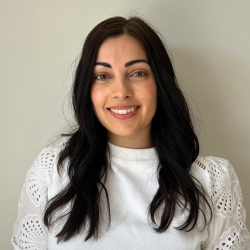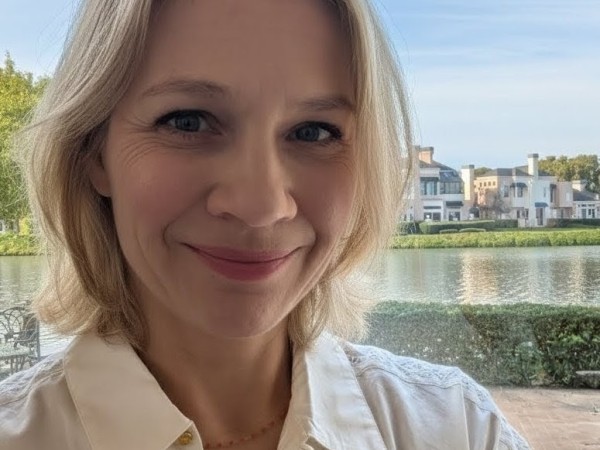
Nat
"There’s so much to get involved in at Surrey, and it’s this diversity of opportunities that makes it such a brilliant place to study."
Course
Nutrition and Dietetics BScWhat do you like about your course and why?
I really like that my course subject tackles real-world problems, particularly how nutrition can prevent and support the treatment of disease. I appreciate the structure of the course, which explores food from multiple perspectives, from the food matrix to physiological metabolism and dietary disease management. I also appreciate the practical elements of the course, such as learning how to run consultations and work effectively in groups, and taking part in ward simulation sessions with actors to practise patient care in a realistic hospital environment. Our lecturers are friendly and approachable and our personal tutors champion us to make the most of every opportunity and stay motivated throughout the course!
"There’s so much to get involved in, and it’s this diversity of opportunities that makes Surrey such a brilliant place to study."
What do you enjoy most about Surrey?
I really enjoy the campus atmosphere at Surrey. It has a lovely balance of nature around us while being walkable to town. The University community overall is friendly, and the campus is a manageable size to navigate around. I really appreciate the academic support available, from the free maths and stats sessions in the library to quiet rooms for students with neurodiverse needs. There is also excellent career prep both embedded in our course and run by the University, with extracurricular opportunities such as workshops on LinkedIn and CV writing, as well as free leadership courses. I am also delighted to be part of University societies, and I have the privilege of leading the Nutrition and Dietetics Society with a fantastic team around me that are so good at their roles. There’s so much to get involved in, and it’s this diversity of opportunities that makes Surrey such a brilliant place to study.
If you’ve completed a clinical placement, what did this involve? What were the highlights?
Our course includes three clinical placements. Placement A in first year, and Placements B and C in third year. These experiences allow you to develop and apply clinical skills, from basic patient communication and dietary assessments to more complex case management in hospital settings. Each placement builds your confidence and professional judgement, and by the end you have a clear idea of what working as a dietitian in a hospital will be like.
The highlight for me so far is being able to put theory into practice, seeing how nutrition directly impacts patient recovery and learning from experienced dietitians who supported and challenged me to think critically about patient care.
"Take advantage of all the opportunities in front of you, especially the ones that are free! Once you’re out in the real world, it’s much harder to find those chances to learn and grow."
What do you want to do when you graduate?
When I graduate, I hope to work as a registered dietitian within the NHS. I’m still exploring which area of dietetics I’d like to specialise in, but I’m excited to experience different fields during my placements and discover where my strengths and interests align best.
What advice would you give to students thinking of studying your course?
My advice would be to take advantage of all the opportunities in front of you, especially the ones that are free! Once you’re out in the real world, it’s much harder to find those chances to learn and grow, so make the most of them while you can. Also, take the time to get to know people and build your own network; your peers and lecturers can become amazing sources of support and inspiration throughout your studies and beyond.

